Following the proper nutritional guidelines can determine both how you emotionally feel and how optimally your body operates. Unfortunately, there is no “one size fits all” diet, and there is still much debate among experts on what the best diet is. Each diet has its own guidelines addressing macronutrients, calories, what foods can and cannot be eaten, timing, and other restrictions.
Given the sheer number of options, the complexity of the characteristics of each diet, and the conflicting nutritional information and principles used to substantiate each diet, it’s no wonder so many of us are confused about what to eat and what diet is ultimately the best. After all, nutritionists, doctors, dietitians, and the medical community at large are themselves still at odds over much of the nutritional advice. However, the majority of experts routinely name the Mediterranean diet as one of the healthiest diets out there.
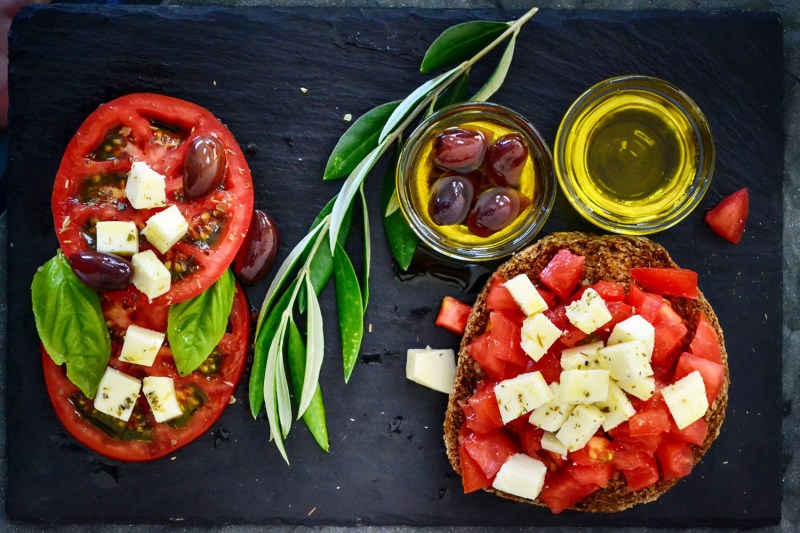
Compared to many other popular diets, the Mediterranean diet is one of the most well-studied, research-backed eating plans, with plenty of evidence to substantiate disease-mitigating effects and health benefits, and it consistently places high in the U.S. News and World Report’s annual ranking of the best diets.
Therefore, among a seemingly endless candidate pool of potential diets, the Mediterranean diet stands out from the crowd and warrants consideration if you’re looking to overhaul your diet to improve your health. If you’ve never heard of the Mediterranean diet, or need a refresher on what it specifically entails, keep reading for our introductory guide to the Mediterranean diet that will help you learn all the basics you need to start eating well and feeling better.
What Is the Mediterranean Diet?
The Mediterranean diet is modeled around the traditional dietary habits practiced in the Mediterranean region — especially Greece and Italy — around the 1960s as these cultures had particularly low rates of lifestyle diseases like Type 2 diabetes, obesity, and heart disease. The Mediterranean diet is a little more flexible and less specific than some popular diets given that the Mediterranean region is vast, and there is plenty of variability in the dietary habits and nuances between exactly what foods each culture eats.
Therefore, rather than prescribe specific macronutrient ratios or include comprehensive lists of allowed and excluded foods, the Mediterranean diet more generally encourages the consumption of vegetables, fruits, legumes, whole grains, nuts, seeds, herbs, spices, fish, seafood, and extra virgin olive oil. The emphasis is on consuming whole, natural foods, especially plant-based ones, and avoiding processed foods and excessive meat.
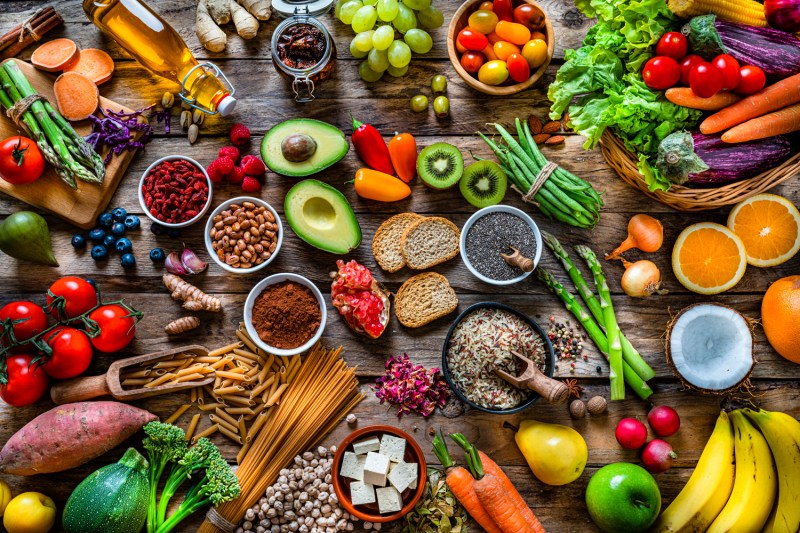
What Are the Benefits of the Mediterranean Diet?
The Mediterranean diet is one of the most well-studied, popular diets. It has been shown to provide numerous health benefits, assist in weight loss, and reduce the risk of various lifestyle diseases. For example, a five-year study compared the Mediterranean diet with olive oil, the Mediterranean diet with nuts, and a control diet. The calorie intake was the same in all three diets, yet the two iterations of the Mediterranean diet reduced the risk of cardiovascular disease by roughly 30% over the duration of the study.
The Mediterranean diet was particularly effective compared to the control diet at lowering disease risk factors, such as weight, high blood pressure, and waist circumference for participants with high blood pressure, lipid problems, or obesity. The Mediterranean diet has also been shown to reduce the risk of metabolic syndrome, all-cause mortality, high cholesterol, and Type 2 diabetes. It has also been shown to be more effective at helping people lose weight compared to low-fat diets.
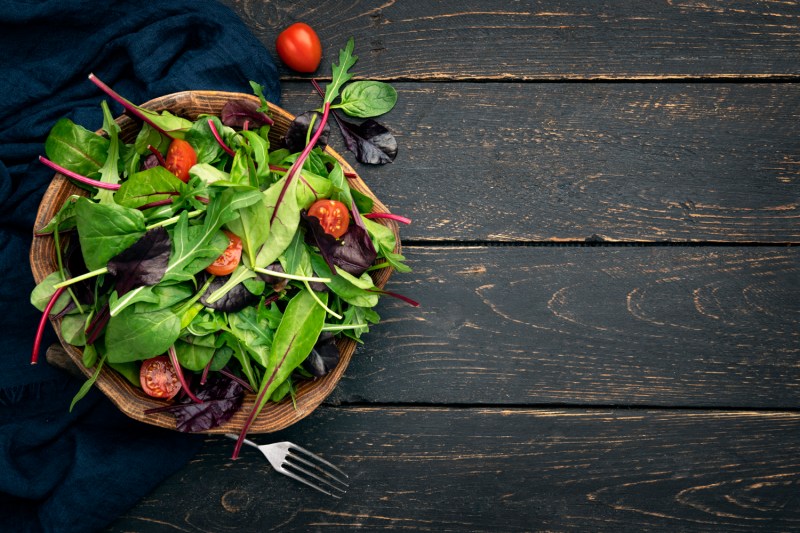
In addition to the reported health benefits, most people find the Mediterranean diet to be practical and feasible. Moreover, given that it is less restrictive and less militant than many fad diets, sustained adherence is often better. Because any diet can only really be successful if it’s actually maintained over time, the fact that more adopters of the Mediterranean diet tend to stick to it cannot be overstated.
Lastly, since the Mediterranean diet is based on sound, sustainable eating habits, it can help dieters make true lifestyle changes to their dietary practices rather than simply view their new food choices as temporary until weight loss is achieved.
What Foods Can You Eat on the Mediterranean Diet?
The Mediterranean diet encourages the consumption of foods native to the Mediterranean region, as well as those traditionally eaten by the cultures residing there. The diet does not provide specific calorie limits, nor does it even emphasize counting calories or macronutrients (carbohydrates, proteins, and fats). Instead, the focus should be placed on eating a plant-based diet with the foods coming in their most whole, natural state as possible.
For example, eating whole, ripe tomatoes would be preferred over canned tomato soup from concentrate or even canned tomato purée. Though the Mediterranean diet is plant-centric, fresh fish is encouraged and eggs are permitted in moderation. The majority of what you eat should be vegetables, fruits, whole grains, legumes, fresh fish, nuts, and olive oil.
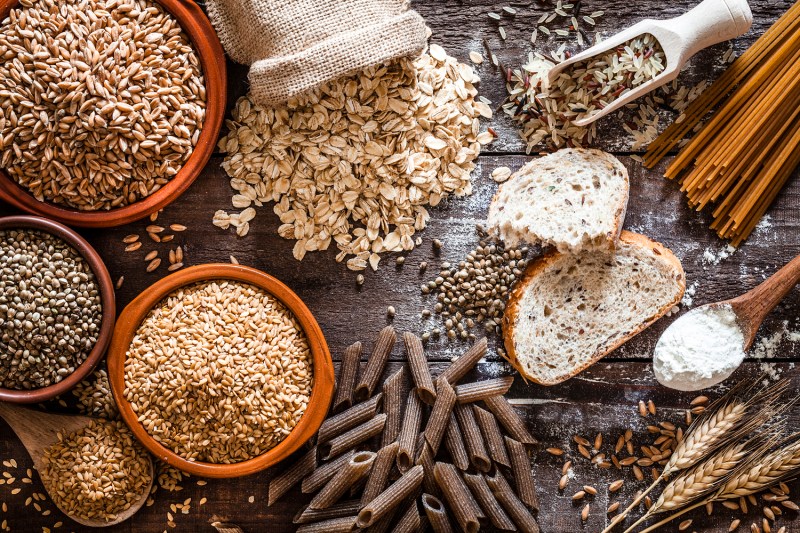
Though far from an exhaustive list, here are some of the best foods to eat on the Mediterranean diet:
- Vegetables: Spinach, kale, chard, broccoli, broccolini, artichokes, zucchini, cucumbers, onions, cauliflower, tomatoes*, peppers* (*technically fruits)
- Fruits: Pears, apples, melons, oranges, berries, lemons, figs
- Tubers: Turnips, potatoes, sweet potatoes, rutabaga, kohlrabi
- Legumes: Lentils, beans, peas, peanuts
- Whole Grains: Buckwheat, whole wheat, rye, brown rice, whole oats
- Nuts and Seeds: Almonds, walnuts, pumpkin seeds, hazelnuts, cashews, flaxseeds
- Legumes: Beans, peas, lentils, pulses, peanuts, chickpeas, etc.
- Fish and Seafood: Salmon, mackerel, sardines, scallops, mussels, clams, trout, tuna, shrimp
- Healthy Fats: Olives, olive oil, avocados
- Herbs and Spices: Basil, oregano, mint, garlic, cinnamon, pepper
- Water
- Red wine
- Unsweetened tea
- Coffee
The following foods can be consumed in moderation, perhaps a couple of times per week:
- Poultry: Chicken, turkey, duck
- Dairy: Cheese, plain yogurt, milk, kefir
- Eggs
Red meat can be eaten very sparingly, maybe once a month.
What Foods Are Not Allowed on the Mediterranean Diet?
Most processed and packaged foods are not allowed on the Mediterranean diet. Essentially, the shorter the list of ingredients on the food label, the better. The following categories of foods should be avoided:
- Refined Grains: White bread, refined pasta, bagels, cereal bars, pastries, English muffins
- Processed Meats: Hot dogs, sausages, lunch meats
- Sweetened Foods: Ice cream, jelly, oatmeal packets, most boxed cereals, pop tarts, candy, juices, sodas
- Refined Oils and Trans Fats: Canola oil, soybean oil, margarine
- “Diet” Foods: Low-fat cookies, sugar-free Jello, lite ice cream
- Artificial Sweeteners
Again, the goal is to eat foods in their most whole, natural state.
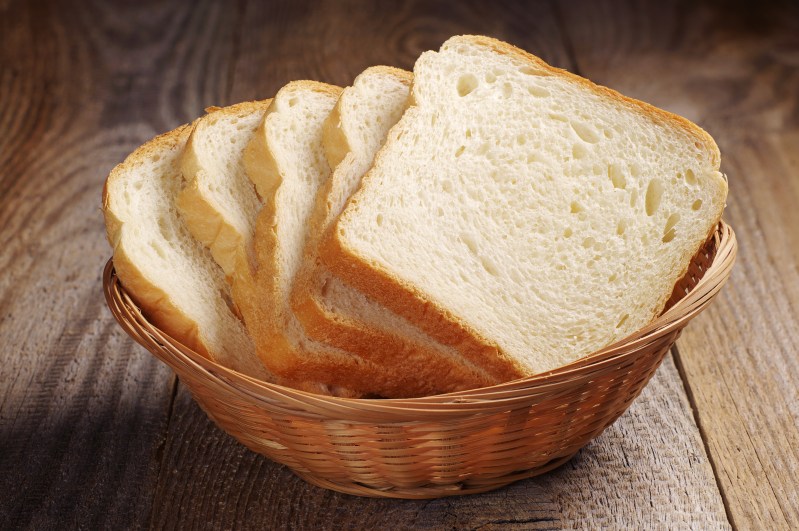
Sample Mediterranean Diet Meal Plan
Curious what a day of eating might look like on the Mediterranean diet? Below, we share a sample meal plan:
- Breakfast: Overnight oats made from whole oats with a topping of Greek yogurt, mixed berries, slivered almonds, and a sprinkle of flaxseeds.
- Lunch: Grilled mixed vegetables over bulgar with a drizzle of olive oil and pumpkin seeds
- Dinner: Large salad with a blend of spinach and arugula, tomatoes, cucumbers, and avocado. feta cheese, and a small filet of salmon or sardines
- Dessert: Fresh peach

Editors' Recommendations
- Aprés ski and more: A drinker’s guide to Aspen
- Our ultimate Bandon Dunes golf resort restaurant guide
- A new study says the Mediterranean diet is good for more than just weight loss
- Cream or sugar? New study finds adding one of these to your coffee is associated with weight gain
- The 5 worst foods for bodybuilding, according to a doctor





